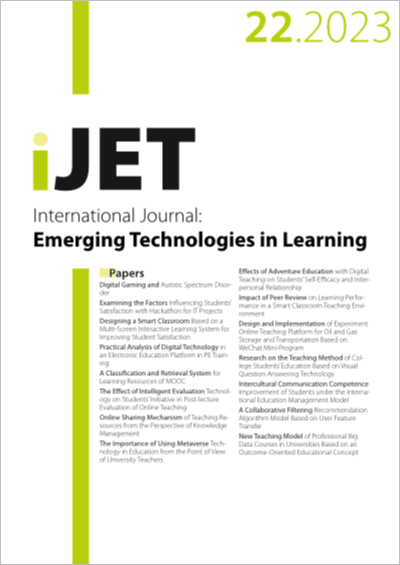Research on the Teaching Method of College Students’ Education Based on Visual Question Answering Technology
DOI:
https://doi.org/10.3991/ijet.v18i22.44103Keywords:
visual question answering (VQA), education and teaching, college studentsAbstract
With the changes of the times, visual question answering (VQA) technology has gradually been widely used in many fields, such as intelligent bionic robots, student learning and education, and visual assistance for the disabled. In view of this, the study proposes a method of college student education and teaching system based on VQA technology. First, a multiscale fusion feature method is proposed for the representation of image features, and then an improved mixed attention mechanism is proposed based on this. Solve the network noise problem; finally, introduce the VQA system. The results show that the research method tends to a stable state when the iteration reaches the 28th time, and the corresponding loss function converges to 2.38, which is 0.5% lower than the traditional model; in the application effect analysis, on the data set test-dev, the research model The accuracies of the four types of questions about “total, whether, count, and others” are 69.94%, 86.21%, 50.16%, and 59.61%, respectively; among the example outputs of the VQA dataset, the research model can accurately infer the categories of each target object. Analyzing the change of students’ comprehensive literacy, when the teaching times of the constructed model reach six times, taking students’ enthusiasm as an example, the score ratios of innovation literacy in subjects such as English, mathematics, and Chinese are 96.32, 93.14, and 88.56. The above results all show that the accuracy of the research method is better, and it has better feasibility and effectiveness in the field of education and the teaching of students.
Downloads
Published
How to Cite
Issue
Section
License
Copyright (c) 2023 Fang Lin

This work is licensed under a Creative Commons Attribution 4.0 International License.



